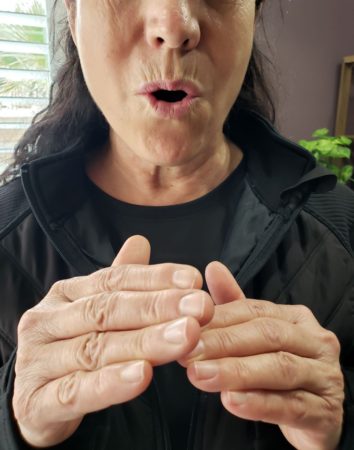Seven article excerpts—the preventative role of Vitamin D for dementia; plus, more preventative tips; public transportation that makes sense to people with dementia; brain aging across the lifespan; online scams and helping loved ones stay safe; helping doctors include caregivers when discussing a loved one’s care; and caregivers saying, “No.”
The Role of Vitamin D in Preventing Dementia
While the sun provides us plenty of Vitamin D, many of us do not have sufficient levels to remove amyloid plaque. This is a key player in developing Alzheimer’s disease as are tau proteins, a contributor to dementia. In a study of over 12,000 people, who were initially dementia-free, results show a marked difference between those who took Vitamin D supplements and those who did not.
Greater Independence with Cognitively Accessible Public Transportation
“… way-finding projects… simplify how information is presented to… make it easier for people with dementia to find their way around. Nostalgic murals/pictures are preferred over symbols because they are more noticeable, distinguishable, memorable, and interpretable.” “An accessible public transport system also makes things easier for care partners.” When a person with dementia can independently make sense of and use public transportation, caregivers get the gift of respite.
Thank you to CAN and the Take Care! Newsletter for these two articles:
Caregiver, Learn to Say, “No.”
 While saying “yes” may seem like an easy solution to avoid conflict, it’s not always in a caregiver’s best interest. Conversely, not being able to say “no” also has implications. “When you say ‘yes’ to something you don’t enjoy, you say ‘no’ to things that you love.” There is nothing wrong with saying, “No.” “It has to be a conscious effort, and getting started can be tough because it takes you out of your comfort zone. But it has to be done.” The article concludes with how to say, “No.”
While saying “yes” may seem like an easy solution to avoid conflict, it’s not always in a caregiver’s best interest. Conversely, not being able to say “no” also has implications. “When you say ‘yes’ to something you don’t enjoy, you say ‘no’ to things that you love.” There is nothing wrong with saying, “No.” “It has to be a conscious effort, and getting started can be tough because it takes you out of your comfort zone. But it has to be done.” The article concludes with how to say, “No.”
What to Do When the Doctor Won’t Listen to the Caregiver
Dr. Laird Landon, PhD, answers a caregiver’s question regarding being ignored by his brother’s doctor. “Unfortunately, many medical professionals don’t really understand the caregiver’s role…. In this case, there are three people in the room. I call it the Therapeutic Triangle—the patient, doctor and caregiver. Each has a role. Here are a few ideas that may help you better communicate with your brother’s doctor.” The article includes a video. [5/27/2023: URL updated]
How does the brain age across the lifespan?
An international team of researchers collected brain scan data from multiple studies representing 101,457 brains, ranging from a 16-week-old fetus to a 100-year-old. One of the findings may prove to be surprising. Gray matter volume, which represents the overall number of brain cells, peaks in childhood at about age 7.
The following two articles are from the ASA Generations SmartBrief.
The Science behind Dementia and Four Ways to Prevent It
We hear it repeatedly, but do we adhere to the advice? A healthy lifestyle is key to preventing or reducing the degree to which we may get dementia. The article urges us to do four things to help prevent the onset of dementia. These include getting our blood circulating with fresh oxygen through strength building and aerobic exercises and being able to hear.
How To Keep Elderly Loved Ones Safe from Online Scams
Review these tips to help elder loved ones stay safe from sophisticated online scammers. Included are 10 common scams such as prescription drugs, lottery, and free vacations. How to spot scams. Finally, the article features 14 tips to prevent being victimized, including installing antivirus software, checking social media settings, and checking in regularly.








